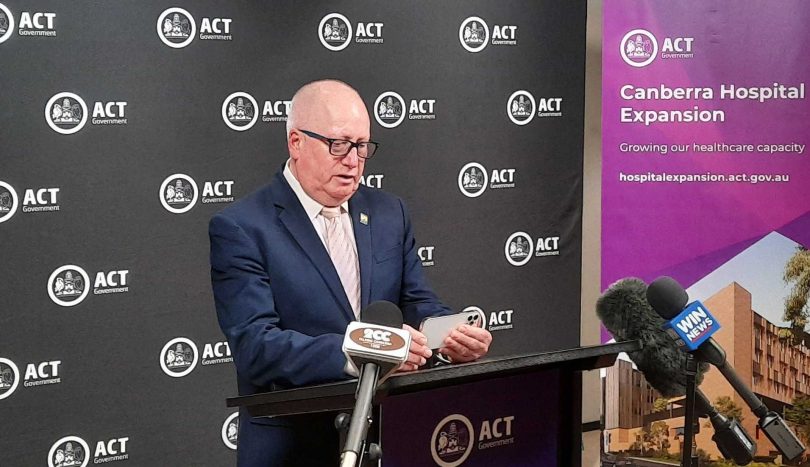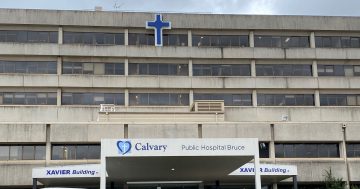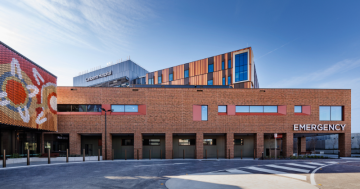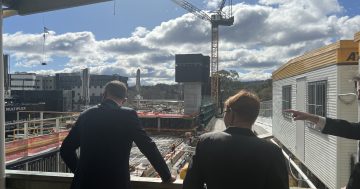
Planning Minister Mick Gentleman announces the Canberra Hospital Expansion approval. Photo: Ian Bushnell.
The Canberra Hospital Expansion project has been a long time coming, but last week’s intervention by Planning Minister Mick Gentleman was a curious affair.
A 2016 election promise, the project previously known as SPIRE, has had its fair share of delays and controversies, but with the DA finally in and contractor named, there had been no hint that a start would not be made as expected later this year for a 2024 finish.
Yet, Mr Gentleman seemingly took it upon himself to use his call-in powers to cut short the planning authority’s usual assessment process and wave the DA through.
But when pressed about why the sudden haste or how much time his intervention will save, the Minister could only say he wanted to ensure the project got underway in a timely manner.
It would only start “a little bit sooner” than if he had let the process run its course.
There was no suggestion that the DA would be refused, or lengthy negotiations would be required or that it could end up stranded in the ACT Administrative Appeals Tribunal, a situation that might justify the Minister’s call for such an important piece of public infrastructure.
The DA had generated only nine representations, a product of the extensive consultation already undertaken, according to Health Minister Rachel Stephen-Smith, and Mr Gentleman said those concerns had been addressed.
The Notice of Decision says the key issues raised were parking, the siting of the building, landscape design, the level of health services and amenity, and access and wayfinding, some of which were outside the planning authority’s remit.
Mr Gentleman rejected assertions that the intervention undermined the approvals process, saying he had used the power sparingly or once a year.
That is true, but in those instances – the Manuka Oval Media centre, Dickson shops development and the Common Ground social housing project in Dickson – at least he could argue some need, urgency or time restraint.
This decision looks gratuitous; a political stunt pulled to provide an ‘announceable’ to maintain the project’s momentum.
The only other reason could be to give the project a marginally greater chance of being completed by the next election in October 2024.
The government has been consistently attacked for its management of the Territory’s health services, especially Canberra Hospital, by the Opposition and a former Labor chief minister, Jon Stanhope.
Mr Stanhope argues that under Andrew Barr, Labor has been underspending in health and that the hospital expansion will not provide sufficient capacity to match the ACT’s growth.
Labor will be striving for a seventh continuous term in 2024 and will want to have a number of big infrastructure projects on track, underway or locked away to make sure of it.
Maybe Mr Gentleman thought a helping hand would be good for Canberra – and his grateful party.
The ACT Greens oppose the use of the call-in powers, arguing that the proper public consultation and assessment processes should never be bypassed.
But maybe this is how the ACT Government rolls these days – acting with impunity, without evidence or argument and frankly dismissive when someone questions such an unwarranted intervention.
Mr Gentleman may disagree, but that’s what arrogance does.
His actions do undermine the planning approvals system and tarnish the call-in powers that should only be used as a last resort when a development of significance faces lengthy delays or the community is deadlocked.
There is still a long way to go in 2022. Mr Gentleman may yet rue using up his ‘once a year’ dip on a such a sure thing.
Unless, of course, there’s something he isn’t telling us.

















